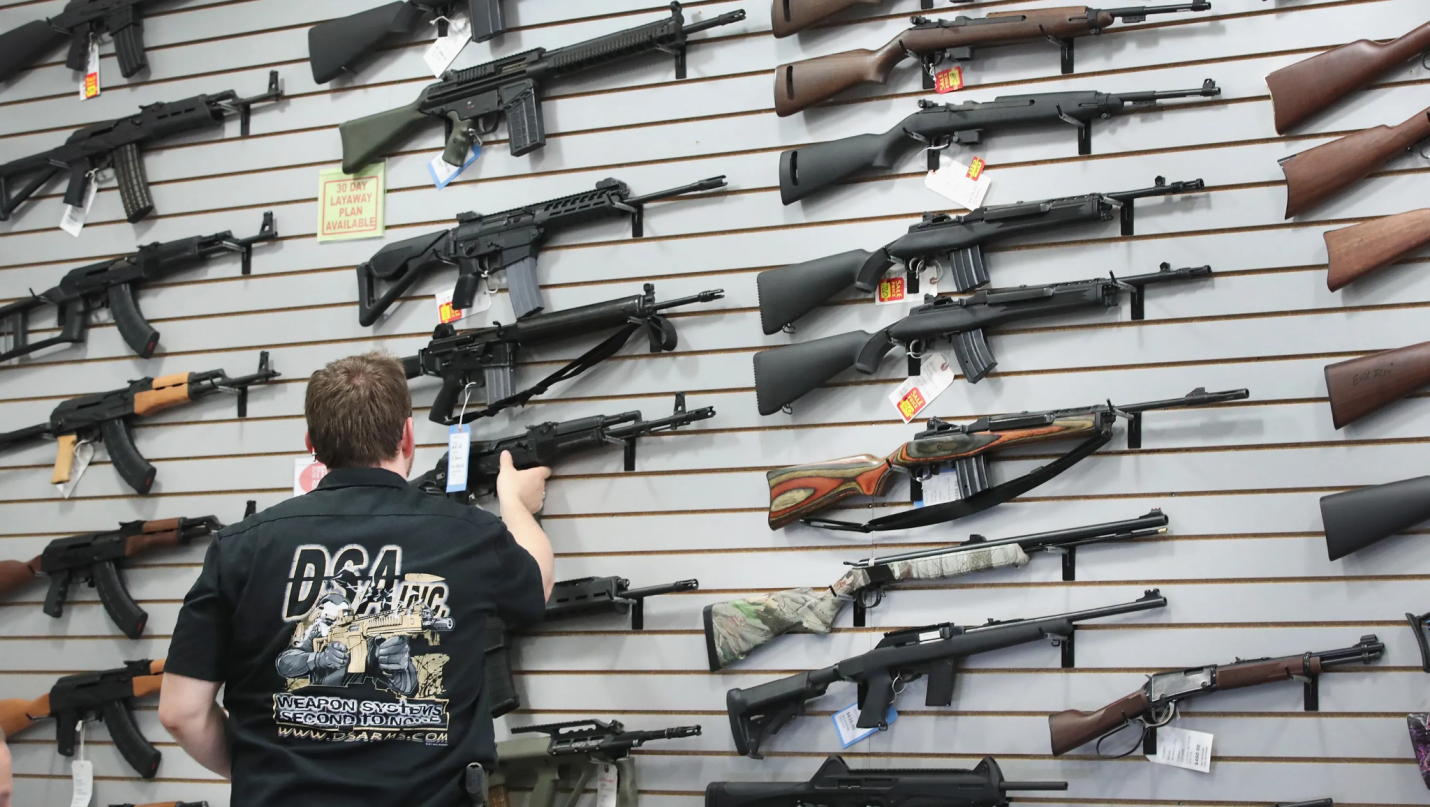Description

Copyright infringement not intended
Context: The state government of Punjab has cancelled the 813 gun licenses across the state in a bid to curb the “gun culture” in the state.
Details
- Following the murders of prominent individuals, the opposition has been pressuring the Punjab administration over "worsening" peace and order.
- The Punjab government issued an ordinance in November 2022 prohibiting all public displays of weapons and songs that glorify violence.
- In Punjab, it is now unlawful to carry or display a weapon at a religious facility, a marriage ceremony, or any other gathering. In the upcoming days, random inspections will be conducted in various locations.
- The state has previously taken several similar actions, including the latest step to suspend licences.

Background of Indian Arms Act
- The sepoy revolt of 1857 was the first incident involving the use of guns by Indians that alarmed the British, who were in charge at the time.
- The British decided that the only way to stop any future large-scale uprisings against them was to establish an Act that prohibited the Indians from owning any weapons. As a result, the Indian Arms Act of 1878 was enacted.
- This Act limited gun ownership to Indians who had received prior authorization or a valid licence. This Act further restricted the manufacturing, sale, possession, and carrying of guns. Europeans were exempted from the provisions.
The Arms Act of 1959
- Following independence, the Indian government passed the Indian Arms Act, of 1959, recognising the need for some law-abiding citizens to own and use firearms for hunting, protecting crops, and self-defence. The Arms Regulations of 1962 came after this Act.
- Objectives: The main objective of the Arms Act is to control and limit the sale of weapons and ammunition. It outlines the process for obtaining licences for specific types of ammunition or weapons, places restrictions on lethal weapons so that citizens cannot get them and specifies how to regulate dangerous weapons. This Act applies to the whole of India.
- Legal Right: The right to keep and bear arms has also been acknowledged as a legal right by the enactment of this Act. It was realised that in some circumstances, such as self-defence or when there is a grave threat to life or property, it is important to permit them to carry and use specific weapons and ammunition.
- Compulsory Licence: The 1959 Act states that no one in India is allowed to purchase, own, or carry any firearms without a licence. Following its amendment in 1983, the Act prohibits anyone from carrying more than three guns, unless they are a licenced dealer, a member of the Union's armed services, or a member of a rifle club or association that is registered with or recognised by the Government.
- Conditions for Obtaining a Gun License:
- In India, 21 years of age is the minimum legal age to obtain a firearm licence.
- The candidate must not have been convicted of any violent or immoral offences five years before applying, and they must not be of "unsound mind" or pose a threat to the peace and safety of the public.
- Following receipt of an application, the licencing authority (Home Ministry) requests that the officer in charge of the closest police station give a report of the applicant following careful screening within a set period.
- The Act forbids anyone who is unsound mind or on bond from obtaining such a licence.
- Qualification for the property is not a requirement for obtaining a firearms licence.
- License Issuing Authority: The State Government/DM in question handles requests for the issuance of arms licences for weapons based on the report of the police authorities, which was created following a comprehensive investigation of the applicant's past and family history.
- The government has the authority to prohibit the distribution and ownership of weapons in specific "disturbed areas."
- 2019 Amendment: The Act was amended in December 2019 to restrict the number of permissible firearms from three to one, and it also gave people a year to deposit any extra weapons with the officer in charge of the local police station or with a licenced firearm dealer, or the unit armoury.
- A licence to possess a firearm now has a five-year validity period instead of the previous three.
- For the crime of obtaining, possessing, or transporting illegal ammunition without a permit, the sentence of imprisonment is increased from 7 to 14 years.
- It forbids the conversion of a firearm from one category to another without a licence.
- Illegal manufacture, sale, and transfer are punishable by a minimum seven-year prison sentence that might be increased to life in addition to a fine.
Way Forward
- India's rules governing the purchase and possession of firearms need to be reviewed and strengthened. One method is to enact tight gun laws and put severe restrictions on who can purchase or possess a weapon.

https://indianexpress.com/article/explained/explained-law/punjab-cancels-813-gun-licenses-indian-laws-arms-possession-8495724/
















